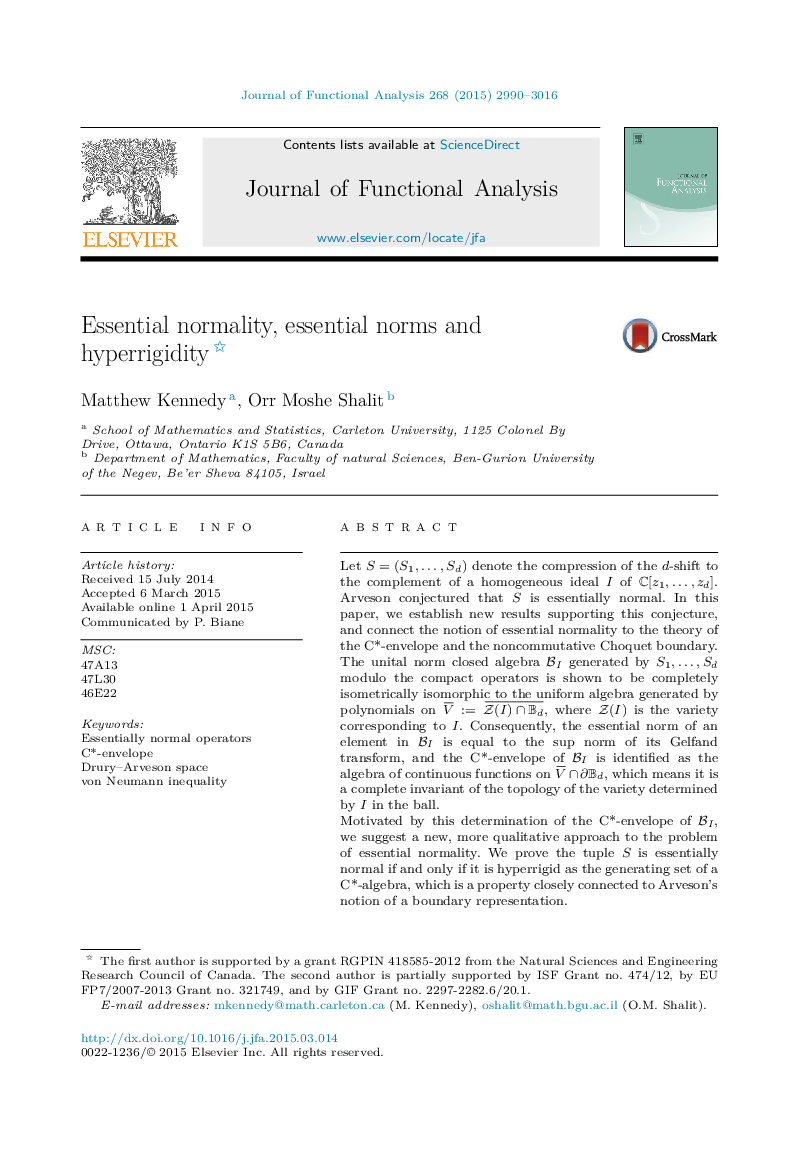| Article ID | Journal | Published Year | Pages | File Type |
|---|---|---|---|---|
| 4589879 | Journal of Functional Analysis | 2015 | 27 Pages |
Let S=(S1,…,Sd)S=(S1,…,Sd) denote the compression of the d-shift to the complement of a homogeneous ideal I of C[z1,…,zd]C[z1,…,zd]. Arveson conjectured that S is essentially normal. In this paper, we establish new results supporting this conjecture, and connect the notion of essential normality to the theory of the C*-envelope and the noncommutative Choquet boundary.The unital norm closed algebra BIBI generated by S1,…,SdS1,…,Sd modulo the compact operators is shown to be completely isometrically isomorphic to the uniform algebra generated by polynomials on V¯:=Z(I)∩Bd¯, where Z(I)Z(I) is the variety corresponding to I . Consequently, the essential norm of an element in BIBI is equal to the sup norm of its Gelfand transform, and the C*-envelope of BIBI is identified as the algebra of continuous functions on V¯∩∂Bd, which means it is a complete invariant of the topology of the variety determined by I in the ball.Motivated by this determination of the C*-envelope of BIBI, we suggest a new, more qualitative approach to the problem of essential normality. We prove the tuple S is essentially normal if and only if it is hyperrigid as the generating set of a C*-algebra, which is a property closely connected to Arveson's notion of a boundary representation.We show that most of our results hold in a much more general setting. In particular, for most of our results, the ideal I can be replaced by an arbitrary (not necessarily homogeneous) invariant subspace of the d-shift.
